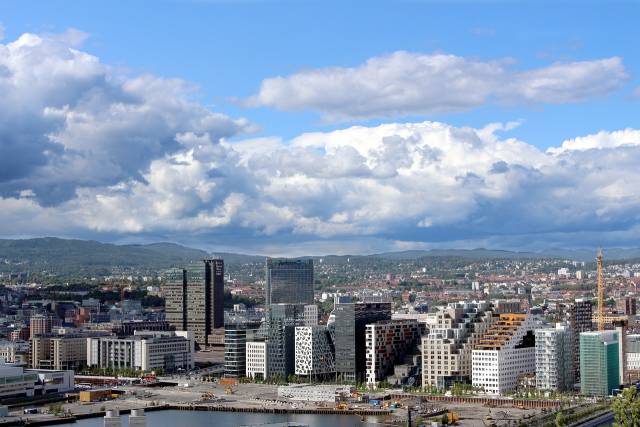Norway's capital Oslo is pushing forward to become an emission-free city, with the goal to use only zero emission technologies by 2030. Public procurement is one of the tools the city is using to achieve that goal, as explained by Geir Rossebø (Team Leder Climate & Environment) during the first annual event of the Big Buyers Working Together project, held in Brussels on 24 April.
Big Buyers Working Together, coordinated by Eurocities, ICLEI Europe and BME, on behalf of the European Commission, aims to bring public buyers together to pool their resources and help them gain more power to influence the market to become more socially and environmentally friendly. Sometimes that is difficult due to a lack of political commitment to continue successful sustainability initiatives after their success. Oslo has managed to overcome this by integrating the notion that public procurement can be used to create a zero emission city both in its procurement strategy and its climate strategy. It also agreed upon a framework on how to achieve this.
In addition, Oslo also has a strong focus on human rights in its supply chains and has since 2013 had social contract clauses in its procurements of goods. In 2023 the so-called Oslomodel was revised, and due diligence requirements are now included in all tenders, both goods and services, where there is a high risk of violations of human rights and labour rights, and/or where there is a risk for corruption and/or negative impact on the environment. These contract clauses refer to and build upon the OECD guidelines for multinational enterprises, which is important to align with international frameworks and guidelines for responsible business conduct.
As Rossebø notes, “we need to push the market to provide more sustainable products. If we don’t work together, if we are not aligning, it’s difficult to know for market actors in which direction they have to move to become more sustainable and meet our needs.” Within the Big Buyers Working Together project, Oslo is part of the Community of Practice on Heavy Duty Electric Vehicles (HDEV). The group will focus on the sustainable public procurement of vehicles used for the delivery of environmental services, particularly street cleansing and waste collection. In this context, this group will seek to engage the market to gain a better understanding of what suppliers can provide, what technologies are available and what the limitations of these technologies are.
The CoP on HDEV is one of the four CoP’s coordinated by ICLEI Europe. Eurocities also coordinates four, while BME coordinates two. The other communities of practice focus on Zero-Emission Construction Sites; Circular Construction; Sustainable Solar Panels; Mobility; Digital; Social; New European Bauhaus; Healthcare Efficiency; Healthcare Sustainability. Public authorities interested in joining a Community of Practice, are encouraged to send an email to Big Buyers Working Together Secretariat, at big.buyers@eurocities.eu.





